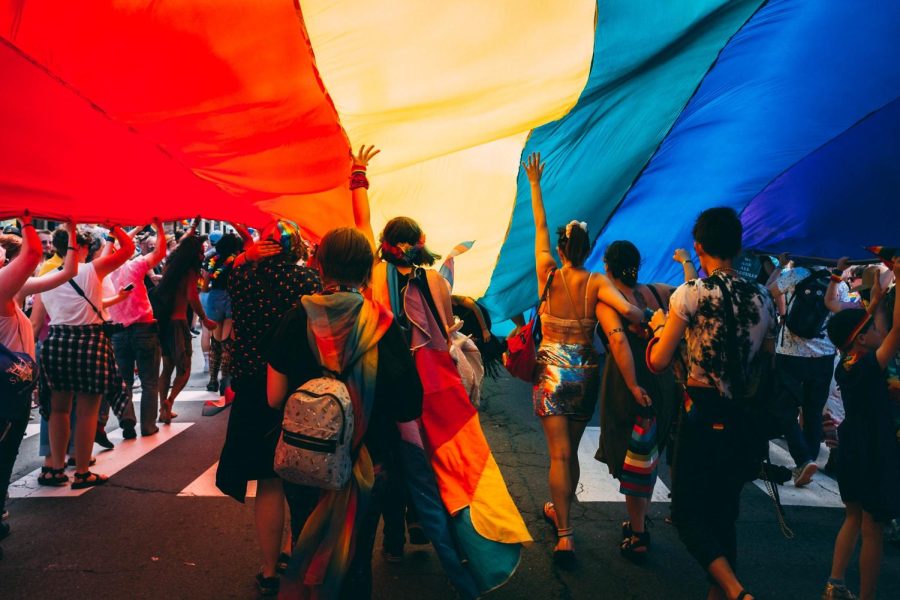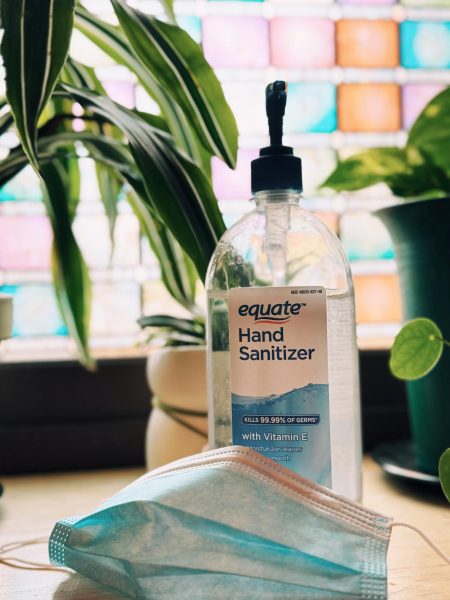Rainbow Capitalism
We Aren’t A Trend
April 4, 2022
Big advertising targets certain audiences and tries to take advantage of a person’s interests or identity. In June of 2021, a month celebrating the LGBTQ
These advertisements began from a place of, “hey… now there’s a lucrative market we haven’t considered.” rather than a place of genuinely wanting to spread awareness and support. This kind of advertising emerged in the late 1970s into the 90s, just before more diverse television and other forms of entertainment began streaming to the masses on a national level. Over the past decade or two, these ads have changed significantly. Today LGBTQ+ ads have been placed directly into mainstream media, whereas little as 50 years ago publishers could only subtly try to create a new open dialogue or utilize very specific LGBTQ+ publications. These advertisements now represent a broader range of gender and sexual identities. These ads have led to a significant amount of visibility for the LGBTQ+ community as a whole. But is that enough? And more importantly what are some of the issues with this kind of advertising?
Many members and allies of the LGBTQ+ community are concerned that these brief gestures of support are not enough in terms of actively serving the community. There is not enough consumer-to-brand interaction happening to actually recognize these issues and make changes and little opportunity for exchanges. It can feel like this is just a glaring cash grab. These advertisements are not consistent and only ever obvious one month out of the year. After pride month is over and done there are many corporations that pull their LGBTQ+ merch off of the shelves and throw them right into the clearance bin.
There is hypocrisy occurring within some of these advertisements, of companies profiting from LGBTQ+ images and branding, only to fund organizations that are heavily anti-LGBT. There are several red flags being raised and people are wondering where the support for these communities was over twenty years ago. A few of these companies to be aware of are AT&T, Walgreens, and United health care. These companies’ true intentions have recently come to light, especially with the controversy of Florida’s “Don’t Say Gay” bill which threatens to not only out LGBTQ+ students but also prohibit LGBTQ+ topics from being discussed within the classroom setting. The language around this bill has been extremely vague and has led to many a heated debate. But that is a topic for another time. For more information, you can refer to the following links: https://www.nytimes.com/2022/03/18/us/dont-say-gay-bill-florida.html; https://www.nbcnews.com/nbc-out/out-politics-and-policy/dont-say-gay-bill-florida-senate-passes-controversial-lgbtq-school-mea-rcna19133; https://www.npr.org/2022/03/08/1085190476/florida-senate-passes-a-controversial-schools-bill-labeled-dont-say-gay-by-criti
Demetria Slyt is a Dakota Student Opinion Writer. She can be reached at [email protected].












